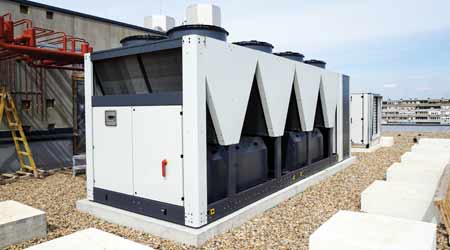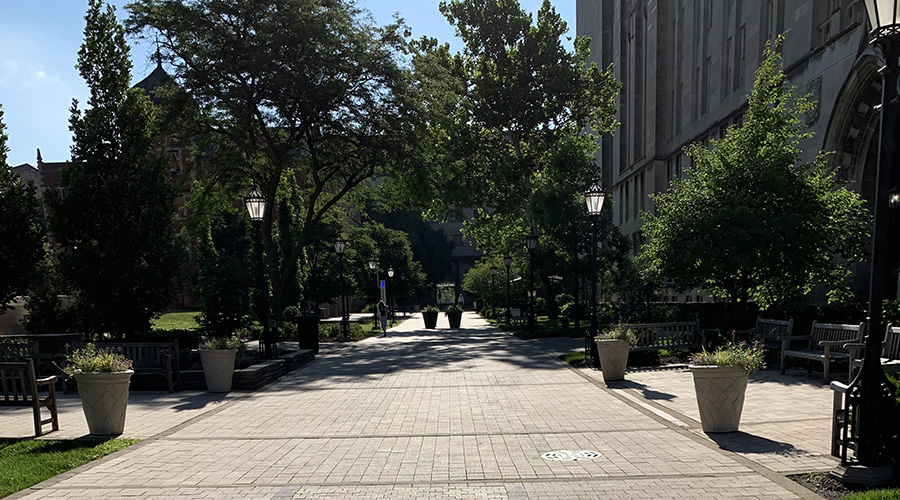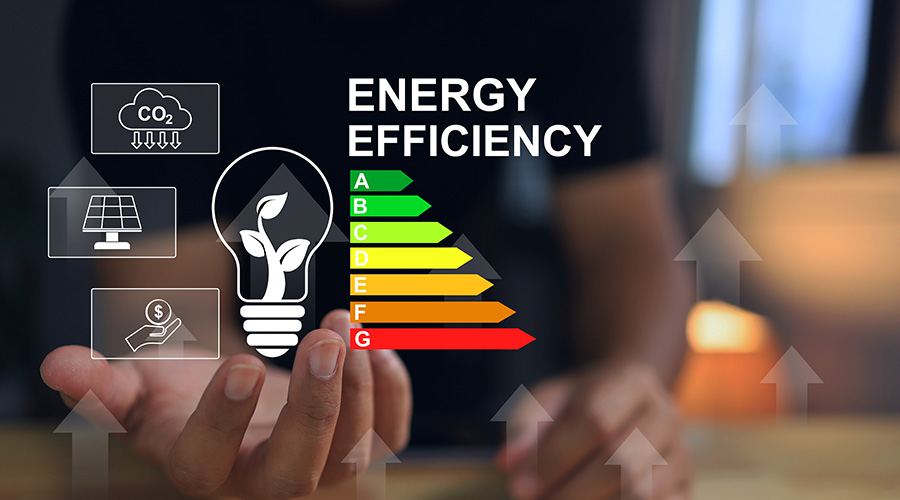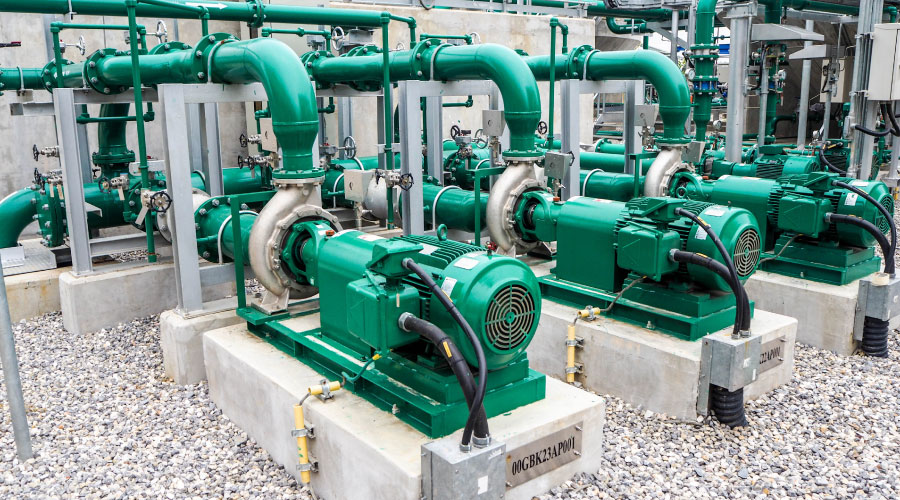 Proper water treatment is crucial to keeping cooling systems employing recirculating water operating effectively.
Proper water treatment is crucial to keeping cooling systems employing recirculating water operating effectively.Understand Common Water Treatment Failures
Plenty can go wrong with even the best water treatment programs. Failures range from bad specs to improper chemical feed and control.
There are a wide range of potential problems that building owners and facility managers should be aware of. Here are some common issues, with an emphasis on steps that building owners and facility managers are responsible for.
• Failure of the building owner or facility manager to maintain design flow with sampling, testing, and adjustments of chemical feed rate for a minimum of two hours daily during shut-downs.
• Failure of the building owner or facility manager, the water treatment supplier, and the cooling system equipment supplier to agree on a detailed performance specification setting forth the duties of the facility operators, the water treatment supplier service persons, and the equipment suppliers, specifying proper operation, control, control testing and results, performance testing and results, and proper operating and testing logs, and training on the operation and maintenance of the equipment, and action required whenever specified results are not being achieved.
• Failure of the building owner or facility manager to conduct the specified testing, monitoring, and control recommendations of the water treatment program supplier.
• Failure of specifying engineer, general contractor, and construction contractor to specify and implement proper hydro-test treatment, proper pre-operational cleaning, and proper flushing and passivation, during the time from first wetting the pipes until system is in continuous operation.
• Failure of the water treatment program supplier to recommend proper chemical feed and control, including daily control tests with appropriate action, depending on results.
• Failure of the water treatment professional to recommend installation, proper operation, and proper interpretation of ongoing monitoring for compliance with the specifications regarding corrosion, deposition, and microbial control appropriate to the type of program being applied.
• Failure of the consultant to adequately specify the responsibilities and steps needed, inspections to be conducted, testing to be performed, and the controls to be maintained on all water wetted systems and equipment during the construction, commissioning, start-up, and turn-over phases.
Related Topics:

















